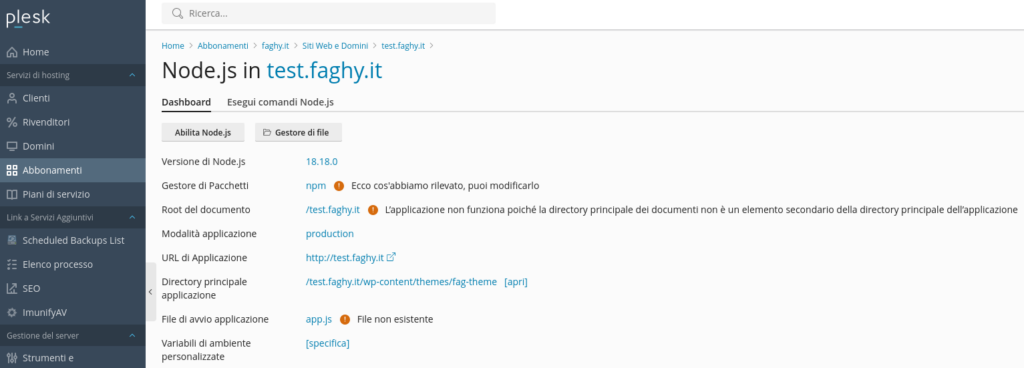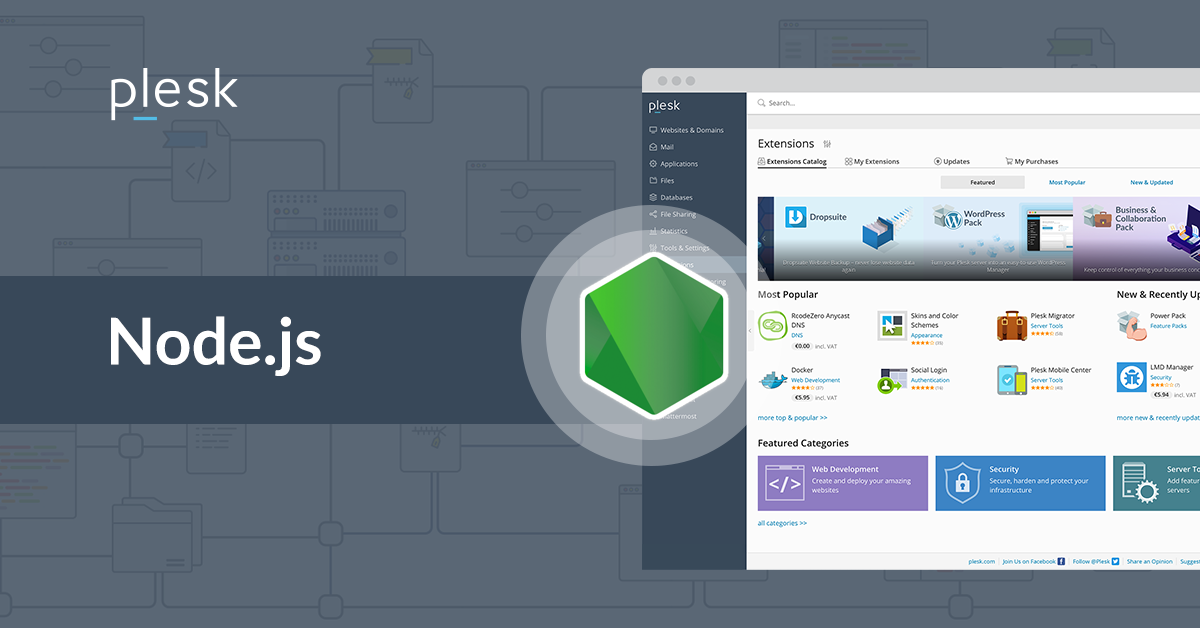How to Use TailFagTheme for WordPress Development Directly on Plesk
Most Popular and User-Friendly Hosting Platforms Available. If you’re a developer working with Node.js, you’ll have the opportunity to easily create and manage a Node.js app on Plesk. In this article, we will explore the necessary steps to do so.
Why Use Plesk for Node.js Hosting?
Plesk is a hosting control panel that simplifies the management of your web server, offering an intuitive user interface and a range of useful tools. Here are some reasons why you should consider using Plesk for hosting your Node.js apps:
- Ease of Use: Plesk is known for its ease of use. Even if you’re not a server expert, you can easily manage your Node.js applications.
- Wide Support: Plesk supports a wide range of technologies, including Node.js, PHP, Ruby, Python, and more. This provides flexibility in choosing technologies for your project.
- Node.js Version Management: Plesk allows you to manage different versions of Node.js easily, which is essential if your project requires a specific version.
How to Create a Node.js App on Plesk
Here’s a step-by-step guide on how to create a Node.js app on Plesk:
- Access Plesk: Log in to your Plesk panel through your web browser.
- Create Domain or Subdomain: Create a new domain or subdomain where you want to host your Node.js app.
- Node.js Section: Within the domain or subdomain, look for the “Node.js” section and select it.
- Node.js Configuration: Here, you can specify the Node.js version to use, file paths for the startup file, environment variables, and other specific settings for your app.
- Upload the App: Upload your Node.js files to the Plesk hosting environment. Make sure to include the main app file, such as app.js or server.js.
- Start the App: Once the app is uploaded, you can start it directly from the Plesk interface.
- Monitoring and Maintenance: Plesk offers monitoring and logging tools to help you maintain and monitor your Node.js app.
How to Use npm Scripts to Compile Directly from the Plesk Server

If you need to run npm scripts directly from your Plesk server for tasks like code compilation or updating resources for the TailwindFag theme – a theme that allows you to use Tailwind CSS with WordPress – you can easily do so. Here’s how:
Access the Plesk Server: Log in to your Plesk panel and navigate to the section dedicated to your domain or subdomain hosting the specific app.
Node.js Section: Within the “Node.js” section, find and select the option for the Node.js app you want to configure for running npm scripts.
Configuration: Choose the Node.js version and npm package manager. Document Root: Specify the main directory, in this case: /test.faghy.it Application URL: This is the browser address at which the site is accessed: http://test.faghy.it
Application Root Directory: Enter the relative path to the WordPress theme: /test.faghy.it/wp-content/themes/fag-theme Optional: You’ll find an option for “Environment Variables Configuration.” Here, you can define custom environment variables, including the PATH variable. Make sure to include the path to the node_modules/.bin directory of your Node.js project. This is where npm installs local package scripts. For example, the path might be /var/www/vhosts/yourdomain.com/httpdocs/node_modules/.bin.
npm Scripts: Once environment variables are configured, you can run npm scripts directly from the Plesk server console. Use the npm run command followed by the name of the script defined in your package.json file. For instance, to run a compilation script, you can use npm run build. In our case, you’ll be presented with the scripts loaded from package.json. For example, to monitor changes and auto-compile CSS or JS files, choose from the options such as run watch-fagtheme and press the start arrow >. To stop watching, click on the dashboard, go back to Run Node.js Command, and launch run stop-watch-fagtheme.
Monitoring and Logging: Plesk offers monitoring and logging tools that allow you to track script execution and any errors. These tools can be valuable for troubleshooting or optimizing the compilation process.
Now you have the ability to run npm scripts directly from your Plesk server, which is particularly useful when you need to perform automation tasks or manage your Node.js project. This integration further simplifies the development and management of your Node.js applications, enabling you to achieve quick and seamless results.
Conclusion
Creating and managing a Node.js app on Plesk is a relatively straightforward process, even for those who are not server experts. This combination allows you to focus on app development without worrying too much about server management.
Plesk provides an intuitive user experience and a range of features that significantly simplify your life as a developer. So, if you have a Node.js project you want to host, consider using Plesk as your hosting platform. With Plesk, you can concentrate on creating exceptional apps without the need to fret over server management.
Moreover, the ability to run npm scripts directly from the Plesk server adds another layer of flexibility to your development process. This integration streamlines your workflow, allowing you to automate tasks such as code compilation and resource updates. With Plesk, you have a comprehensive toolset for managing your Node.js project, from configuration to script execution, all within a user-friendly environment.
